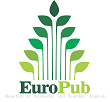Code of Publishing Ethics
USP follows the Committee on Publication Ethics’ (COPE) Core Practice and Ethical Oversight Policies. USP makes all reasonable efforts to investigate publication misconduct, including fabrication, falsification, and plagiarism. If misconduct is suspected, journal editors will act in accordance with the Principles of Transparency and Best Practice in Scholarly Publishing as stipulated by the COPE, Directory of Open Access Journals (DOAJ), Open Access Scholarly Publishers Association (OASPA), and World Association of Medical Editors (WAME).
All submissions to USP journals are subject to rigorous review. The editors, authors, or readers can forward their concerns to the journal if they find out that the description in a published article may constitute academic fraud, research misconduct, or publication malpractice. The concerns or complaints on the possible allegations submitted to the journal will be dealt with promptly and appropriately according to the procedure set out in the COPE's guidance on complaints. The complainant may direct all inquiries and correspondence to the Publisher at editor.office@usp-pl.com.
Research Involving Human Subjects
For research works involving human subjects as well as biological material, authors should provide a statement that the experiment was approved by the appropriate institutional ethics committee, along with the ethics committee’s name and approval ID, and certify that the research was performed in accordance with the Declaration of Helsinki, including the amendment versions or comparable ethical standards. If authors cannot provide the aforementioned information, they must explain any doubt in detail in the manuscript so that readers/reviewers can eliminate moral or ethical doubts.
Generally, if a trial involving a biological material could not be certified to have been approved by an ethics committee, the manuscript may not be considered for the peer review process.
Statement of Informed Consent
Human subjects in any studies have the right to the protection of their privacy. Personal identifiers, such as face, fingerprint, name, and birth date, must be hidden as much as possible. If the study does require that some private information is unavoidable to be exposed, authors must obtain a written Informed Consent Statement and inform the subjects of the potential consequences of the publication. If the subject is a vulnerable person, authors must obtain a written Informed Consent Statement from the subject’s guardian or relatives-in-law.
Please refer to ICMJE Privacy and Confidentiality guidelines for more information about patient anonymity and privacy.
Research Involving Animal Subjects
Studies involving animals must comply with appropriate industry regulations and guidelines. Like research involving humans, studies involving animals should provide any details from the institutional ethics committee’s approval, including but not limited to the name of the ethics committee and the approval ID. Authors must explain or provide the statement of the exemption approval if the study was exempted from the ethics license. If lacking the details, authors should explain any possible doubts to reviewers and editors.
Recommended codes on research involving animals include but are not limited to:
· The Code of Practice for the Housing and Care of Animals Used in Scientific Procedures
· EU regulations on animal research
· The ARRIVE Essential 10: Compliance Questionnaire




.jpg)
.jpg)

